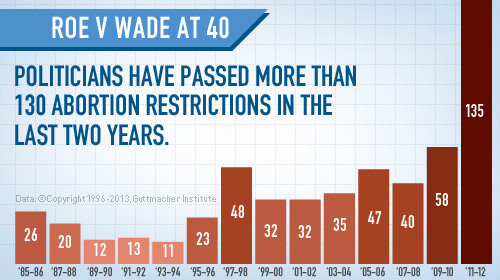By Ariela Migdal, ACLU Women's Rights Project
Until today, official United States policy banned all women from being assigned to ground combat units. The policy was military-wide and covered our whole gender – no exceptions for women who were fast, strong, excellent marksmen, good at keeping calm under fire, or able to take and give directions in a high-octane situation. It was one of the last remaining relics of official government exclusion of women. Among the many problems with this policy was the fact that it bore little relationship to the reality of modern warfare. The people who shot down Major MJ Hegar’s combat helicopter during a rescue mission and engaged her crew with heavy ground fire in Afghanistan apparently hadn’t read the policy. The military leaders who sent Marine Corps Captain Zoe Bedell and First Lieutenant Colleen Farrell to Afghanistan to command teams of women who would live, work, and fight with ground infantry troops in tiny combat outposts must have known about the policy, but got around it by assigning the women into so-called “Female Engagement Teams,” instead of to the infantry units themselves. And the commanders who plucked Army Staff Sergeant Jennifer Hunt from her regular job in Civil Affairs and put her in helicopters over the Afghan mountains, to be dropped off with platoons of ground soldiers going on door-kicking missions, seem to have disregarded the policy altogether because they had missions to accomplish. Today, the Pentagon will finally get rid of the antiquated combat exclusion policy. This is a historic moment that came about because women like the plaintiffs in the ACLU’s lawsuit challenging the policy had the guts to do double duty for our country. First, they gave their blood, sweat, and tears in the military, slogging through the mountains and the deserts and, in the cases of Major Hegar and Staff Sergeant Hunt, sustaining combat injuries. Then, when they came home to find that official policy insisted that their combat service didn’t even exist, they performed a second service, by coming forward to tell the nation what they and other women have been doing on the battlefield, and to insist that the policy be changed. Eliminating the combat exclusion policy is a huge step forward for our country and for our military. No longer will commanders be limited to a talent pool that excludes thousands of ready, willing, and more-than-able soldiers. No longer will an outdated policy interrupt operations and dictate who can do which job in the thick of the fight. No longer will women volunteer to put themselves in harm’s way, only to be told that entire career fields and more than 238,000 positions are off-limits to them. We can finally get rid of the brass ceiling that keeps the top military leadership overwhelmingly male. We, along with our four clients, our client the Service Women’s Action Network, and thousands of servicewomen and veterans, will be keeping a close eye on the armed services as they implement this change. Now is not the time for foot-dragging or more games about which jobs women are officially permitted to do. For more than a decade, women have been risking and, in more than a hundred instances, giving up their lives in combat. It’s long past time for the policy to catch up.
Date
Thursday, January 24, 2013 - 11:30amFeatured image

